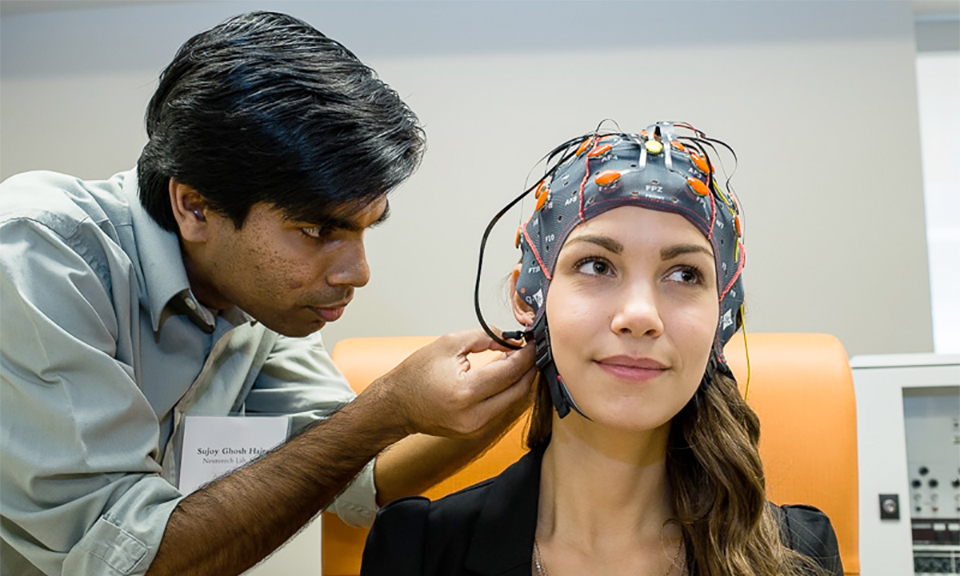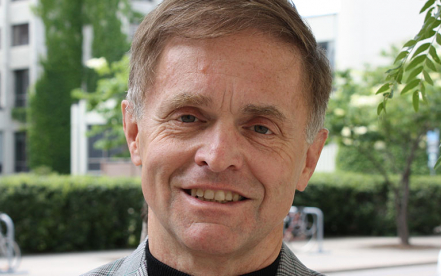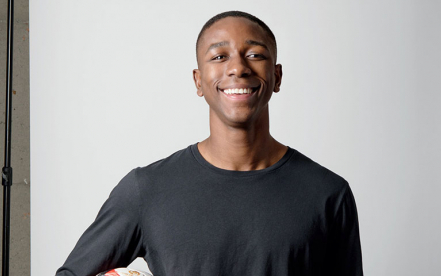Transforming lives through philanthropy at Canada's engaged university
What if diagnosing brain health was as easy as taking your temperature?

Team member tests vital signs software on volunteer
We’re all familiar with the simplicity and accuracy of using a thermometer to read our body’s temperature to pinpoint a fever. What if monitoring brain health was as accessible?
Thanks to Dr. Ryan Darcy, a leading neuroscientist at SFU, and his donor-funded research, something not far off that model may be possible, using technology to measure brain vital signs. Darcy is part of an international team of scientists, clinicians, engineers and health and business leaders who are focused on addressing the global challenge presented by brain injuries such as concussion and dementia.
With more than 20 years of research and development supporting brain vital signs technology, Darcy’s team has a proposed solution: the NeuroCatch™ software platform. This technology provides the vital measurement tool and uses a brain wave device (electroencephalogram, or EEG) to connect the individual’s brain with the software. Scores measuring auditory sensation, basic attention and cognitive processing give a snapshot of the brain’s vitality.
With an established network across Canada and the United States, the team has been monitoring concussions, validating concerns around slow brain recovery and silent injuries. They’re also monitoring older adults, helping to detect early dementia and optimize treatments. Most encouragingly, new treatments, grounded in the data gathered from brain vital signs, appear to greatly improve and optimize brain health.
One such patient is well-known US TV talk show host, Montel Williams, who lives with multiple sclerosis and has benefitted from using brain vital signs in managing his disease. “I’ve dedicated my life to doing everything I can to keep my mind and body healthy as I battle MS. This is how I came to know Dr. Ryan Darcy and his game-changing approach to brain injury,” says Montel.
“The human brain has a remarkable ability to heal itself,” asserts Darcy. “Brain vital signs help confirm that what we’re doing with a patient’s treatment will encourage that innate tendency.”

